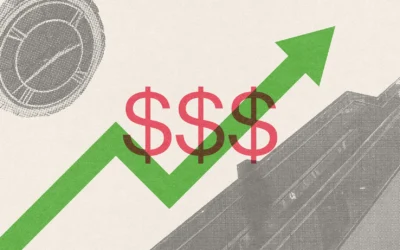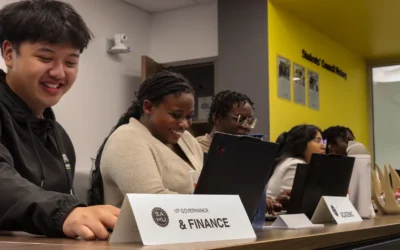Interview questions and answers have been edited for clarity.
March 10 to 14 was MacEwan’s Pride Week, celebrating the 2SLGBTQ+ community’s identity. One of the events hosted on March 12,was a panel presentation clearing any misconceptions of transgendered athletes in sports.
I had the privilege of interviewing Eva Bošnjak , the panel presenter, who obtained a master’s in sociocultural aspects of sports & physical activity from the University of Calgary.
You were engaged in sports throughout your life. Why do you feel like it’s important for anyone to access sports?
I think just for so many reasons. For me, sport was a big place where I found a lot of community and also friendship. As I have come out as queer and non-binary, because I didn’t come out when I was in high school or anything like that, I have found that I’ve lost that sense of community. Sporting environments are no longer safe or welcoming for me anymore. And so, it is very sad to me that trans and gender diverse folks are not able to access those spaces in the ways that they want to.
How did you and your peers react when you first heard of the Alberta Government’s plan to introduce Bill 29?
I think a nice way to put it is I was very, very angry. I’m very familiar with both the biomedical and sociocultural research, and this… piece of legislation is clearly being informed by people’s personal opinions of trans people. This is not an evidence-based policy. There is zero research to support a policy like this. And so, yeah, very angry in a sense that it’s not evidence-based, but also that… it’s going to result in greater surveillance of girls’ and women’s bodies in particular, but honestly, anyone’s bodies of any gender.
I’m honestly just really mad. It’s going to make sport participation so much more difficult for so many people of all genders.
What might you say to explain the negative impacts of Bill 29 to the bill’s supporters?
This bill is also going to harm cisgender women and girls. It’s going to result in people watching girls’ and women’s sports in Alberta right now, and people are going to be essentially looking for people who they think appear to be trans. And so, if you are a parent of a child who is cisgender and who is a girl, do you really want your girl to be subjected to that — or your child who’s a girl to be subjected to that kind of surveillance and that kind of scrutiny? Because it absolutely is going to happen to cisgender girls, 100 per cent.
This is not a policy that’s going to impact just trans girls and women, because you cannot tell if someone is trans or not… If you are the parent of a girl, there is a chance that your daughter may also be harmed by this.
Is there anything else you want to discuss that you feel is overlooked regarding trans athletes?
I think that oftentimes trans men and trans masculine people are overlooked, because folks who identify in one of those two ways or a combination of those ways are people who are assigned female at birth. And because of the myth of male athletic superiority, we are often seen as not a threat, and therefore, we don’t need to be discussed. And no one needs to think about how we’re participating in sports, but we do experience pretty significant barriers in terms of participating in sports.
As a trans masculine person, I never ever want to compete on a men’s team, which is preventing me from participating in competitive soccer again, because I generally can’t really compete on women’s teams just because of gendered expectations. And so, a lot more research and a lot more thought needs to be put into how trans masculine people and how trans men are experiencing sport and what they actually need to feel included and welcomed.
What advice or words of comfort do you have for people impacted by Bill 29?
Especially if you aren’t connected to queer and trans community, I think it’s important for people to know that there are a lot of queer and trans folks out there and a lot of community to be found. This policy is going to impact a lot of people, and so I think that a really great thing is that… we do have numbers. We do have people who want to engage in allyship and accomplishment alongside us. And so, I think that if we gather as a collective and work together as a collective, we do have the chance to make a change, and the possibility of change is there.





0 Comments